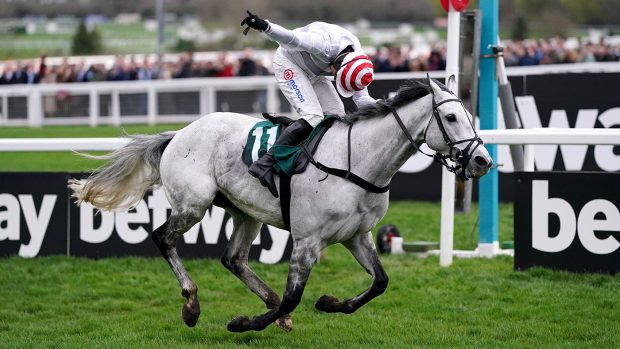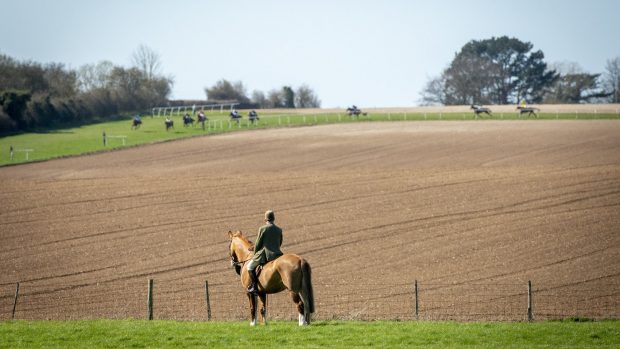Looking for a job? Check out the latest vacancies >>
“It’s one of racing’s biggest successes,” says the British Horseracing Board (BHB)’s public affairs director Alan Delmonte.
He’s talking about the BHB graduate programme, which celebrates its 15th birthday in 2006. Set up by Christopher Hill in 1991, it acts as “a stepping stone for enthusiastic young people who want to work in the industry”, says the BHB’s Michelle Douglas, who now runs the course.
It is always heavily oversubscribed — despite little advertising, around 150-200 people apply for just 16-18 places.
Applicants are usually divided between those with a horsey background who know little about betting and racing politics, and those who follow form closely and watch a lot of racing, but lack equine knowledge and experience. A reasonably high academic standard is expected — most of the major universities are represented.
The course kicks off with a two-week stint in Newmarket at the British Racing School, stuffed to bursting with lectures from senior figures across all facets of the racing industry. There are also visits to trainers’ yards, the gallops, the Jockey Club rooms, the National Stud, Weatherbys, Tattersalls — to name just a few.
“It is really hard work — you have a lot of lectures and it’s pretty intense, but amazing fun,” says Horse & Hound sub-editor Victoria Gray, who took part in the programme in 2004. “There’s plenty of opportunity to play, as well as work hard.”
One graduate of the 2001 course worked out that she had more lectures during those two weeks than in the whole of her final year at university — which may say more about the average English degree than the BHB course…
Those lectures include talks on the handicapping system, the betting industry, retraining of racehorses, racing and the media, marketing, the breeding industry, the rules of racing, security and racecourse management — all from the top people within those spheres.
“The best thing about the programme for me was having the opportunity to ask people across the industry questions I had never had the chance to ask before,” says Alan Delmonte, himself a graduate of the 1994 course.
“Trainers whose careers you had followed through the pages of the newspapers were there in the flesh, waiting to be asked questions. It was a tremendous eye-opener about so many facets of racing.”
“It was a breath of fresh air to share my passion with a bunch of guys and girls who felt the same way as I did about racing,” says trainer Paul Keane, who was part of the 1996 programme. “It has opened every door to where I am now in racing.”
At the end of the two weeks, nursing strong hangovers and a newly acquired wealth of knowledge about racing, students are sent off all over the country to different placements. These last approximately two months. Placements include bookmaking firms, the Levy Board, the BHB and Jockey Club, the Racing Post, Racecourse Holdings Trust, caterer Letheby and Christopher, Tattersalls, Darley, Weatherbys and the Racecourse Association.
These have in effect generously sponsored the chosen student through the initial two-week course, at some expense, and graduates are also paid a salary during their placement.
The BHB does not, of course, guarantee graduates will find jobs in the racing industry, and some will inevitably decide that, with their new-found knowledge, racing is not for them. But a healthy proportion does pursue the dream, having been given a decent leg-up up by the BHB programme.
A newspaper article last spring described it as “the best job club in racing” — and certainly the alumni list is impressive. The early years of the course produced, among others, Coral public relations officer Simon Clare, Newmarket managing director Lisa Hancock, racing barrister Gill Nevin and journalists Ed Prosser and Charlie Methven. Paul Keane and Tor Sturgis, also graduates of the scheme.
Those working in racecourse management include Jim Allen, general manager at Sedgefield, and trainee clerk of the course Gemma Charrington, Chester clerk of the course Ed Gretton, and Huntingdon’s Amy Starkey.
Tattersalls Horses-in-Training sale manager Gavin Davies, and amateur jockey and budding auctioneer Harry Fowler graduated from the scheme, as did Tom Gittins, who puts together and manages racing syndicates.
Not surprisingly, the BHB and Jockey Club themselves are well populated with former course graduates — Will Lambe, BHB communications manager, Owen Byrne, Jockey Club PR officer, and Camilla Tabor, BHB race programmes assistant, are all members of the 2001 scheme. Darley’s Catherine Hudson and Tish Thompson both started off as BHB graduates. So, of course, did I.
But do not despair if you don’t make it on to the course — there are many routes into racing. Just ask Lydia Hislop, BBC racing presenter and Times columnist. She failed to make it on to the scheme, and she hasn’t done badly for herself.



